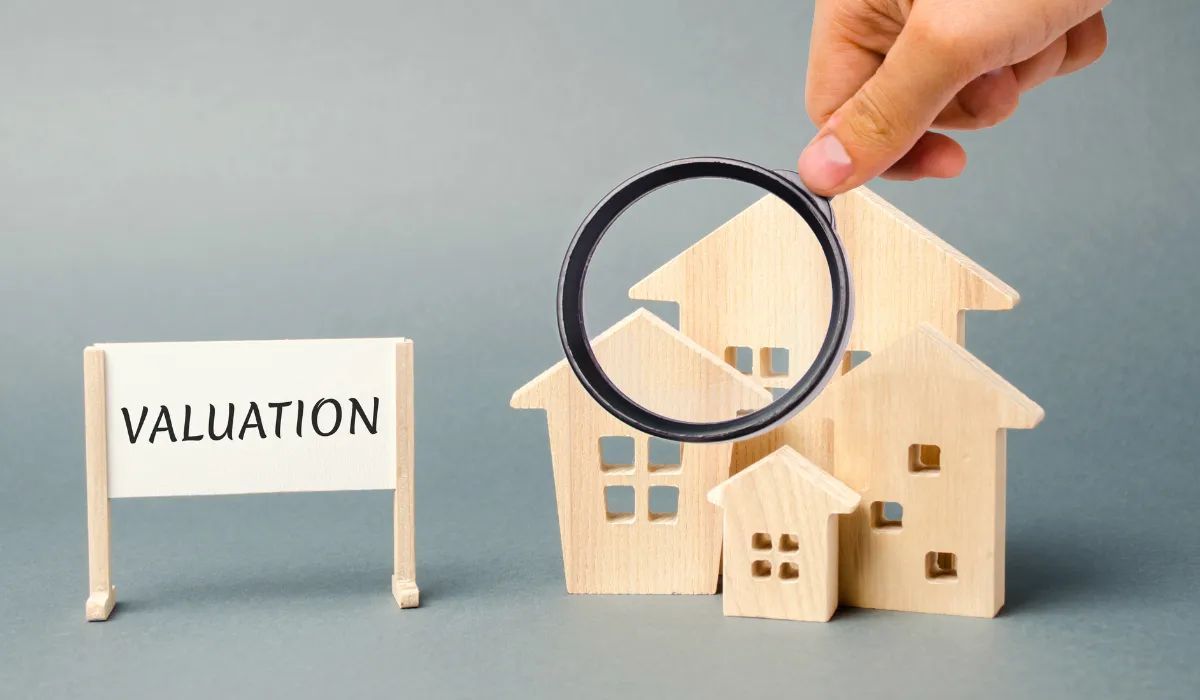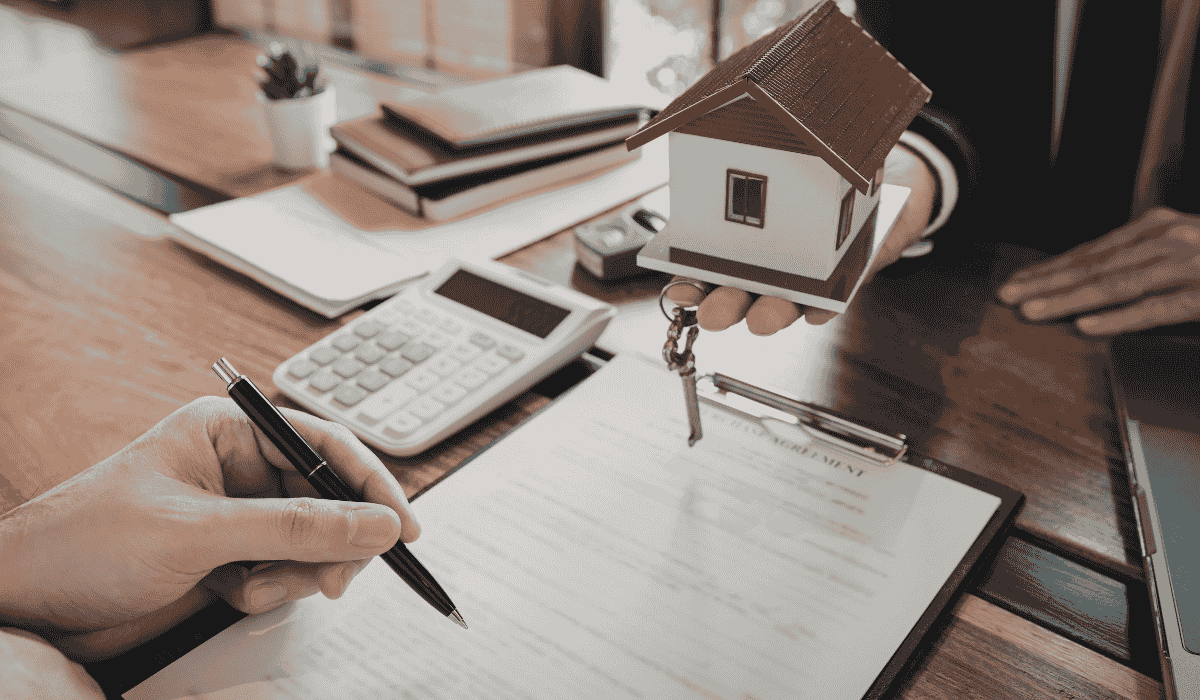Is Your Estate Undervalued? 7 Signs to Check Now
7 Warning Signs Your Estate’s Value Might Be Lower Than It Should Be—And How to Fix It

Let’s take a moment to talk about something that often gets overlooked but is super important — estate valuation.
Whether you own a house, a piece of land, a commercial property, or any real estate, knowing what it's actually worth is a big deal.
You see, sometimes people don’t realize their property is undervalued. That means it's worth a lot more than what it shows on paper or what someone has told you.
And guess what? If you don't catch that in time, you could lose out on money — big money — whether you're selling, refinancing, paying taxes, or passing the estate on to your loved ones.
So, how do you know if your estate is undervalued? What should you be looking for? Well, today, I’m sharing 7 clear signs you should never ignore.
1. Recent Property Sales in Your Area Are Much Higher Than Your Valuation
Let’s start with the most obvious one. Look around. Are homes or estates in your neighborhood selling for way more than what your property is valued at?
For example, if your neighbor’s house — which looks pretty similar to yours — just sold for $500,000 and your estate is valued at $400,000, that’s a big red flag.
Why does this happen?
- Sometimes, outdated assessments are the culprit.
- Or maybe your last appraisal was done years ago when prices were lower.
What should you do?
Check online property listings, talk to local realtors, or use free online property value checkers to compare.
2.You’ve Renovated… But the Value Wasn’t Updated
Here’s a super common mistake.
You put your heart and money into renovating — maybe you upgraded the kitchen, added a bathroom, installed energy-efficient windows, or even built an extra room.
But guess what? If your property valuation hasn’t been updated after these upgrades, chances are, the current value doesn’t reflect those improvements.
Remember:
- Renovations often increase property value significantly.
- If your valuation doesn’t account for them, you’re leaving money on the table.
✔ Pro tip: Always request a new appraisal after major renovations.
3. Your Last Valuation Was Done Several Years Ago
The real estate market isn’t static. Prices go up and down depending on demand, location trends, economic changes, and even community developments.
If your estate was last valued 5, 10, or even 15 years ago, it’s highly likely the figure is outdated.
Here’s the thing:
- Property values can change a lot even in just 2–3 years.
- New schools, parks, shopping centers, or roadways can boost local property prices.
Check: When was your estate last professionally evaluated? If it’s been a while, it’s time to take action.
4. New Developments Nearby Are Boosting Demand
This one’s big — and often ignored.
Imagine a new highway, airport, shopping mall, or hospital being built near your property. What happens? Demand for properties in the area shoots up.
But here’s the catch — if your valuation hasn’t caught up with these changes, it could still be reflecting the old, lower demand prices.
✔
Example:
A quiet suburban area suddenly gets a new metro line connecting it to the city center. Overnight, property values spike — but not if your valuation report is stuck in the past.
5. Your Estate Has Unique Features That Are Undervalued
Not all properties are the same, right? Maybe your estate has:
- A stunning lake view.
- Extra land size.
- Solar panels and eco-friendly features.
- A historical background.
- A prime corner lot.
Sometimes, cookie-cutter valuations don’t take these unique factors into account properly.
The result? Your property’s real market worth might be way higher than the generic figure you’ve been given.
✔ Tip: When getting an appraisal, make sure the evaluator considers all unique aspects of your estate.
6. Inaccurate Tax Assessment Values
Many people believe their property tax assessment reflects their real estate value. But that’s often not the case.
Truth:
- Tax assessments are sometimes based on formulas or mass assessments rather than detailed evaluations.
- They can be years behind the current market.
If your tax value seems weirdly low — or even sometimes unnecessarily high — it’s worth double-checking through an independent estate valuation.
✔ Bonus Tip:
If your tax value is too high, proving an accurate lower valuation can save you money on property taxes. On the flip side, if it’s too low, you’re missing out if you plan to sell.
7. Professional Appraisers Gave You Differing Estimates
Ever noticed that two different appraisers give you wildly different numbers for your estate? It happens more often than you think.
Why?
- Some appraisers use outdated data.
- Others may miss unique features.
- Or they apply general market trends without considering your property's special qualities.
If one appraisal comes in at $450,000 and another at $525,000 — that’s a huge gap. This is a clear sign you need a second (or even third) opinion.
✔ What to do:
- Get multiple appraisals.
- Cross-check with local real estate agents.
- Use online estimation tools as a starting point — but don’t rely solely on them.
✅ Why an Accurate Estate Valuation Matters (A Lot!)
You might wonder — “Okay, but why does it even matter if my estate is undervalued?” Oh, it matters. A lot. Here’s why:
ScenarioWhy Valuation MattersSelling your propertyDon’t sell yourself short.
Get the right price.Refinancing a mortgageA higher value may help you borrow more at better terms.
Divorce or estate settlementFair division depends on correct values.Inheritance planningAvoid disputes and ensure fair asset distribution.Property tax appealsPrevent overpaying or correct under-assessed values.Wealth managementYour property’s value affects your total net worth and future plans.
🏡 How to Get Your Estate Valued Correctly
If any of these 7 signs made you pause and think — “Hmm... maybe my estate is undervalued”, here’s what you should do next:
🔹 Step 1: Research Local Sales
Check property sales in your area from the past 6–12 months. Websites like Zillow, Redfin, Realtor, MagicBricks, or 99acres can help (depending on your location).
🔹 Step 2: Hire a Qualified Appraiser
- Look for licensed professionals with a good reputation.
- Ask if they specialize in properties like yours (residential, commercial, farmland, etc.).
🔹 Step 3: Consult Real Estate Agents
Agents often have on-the-ground knowledge and know what buyers are actually paying — sometimes more accurate than automated tools.
🔹 Step 4: Use Multiple Sources
Don’t rely on just one number. Get valuations from:
- A licensed appraiser
- Online tools
- A real estate agent
Then compare and cross-check.
🚩 Common Mistakes to Avoid
- Relying only on your tax assessment.
- Assuming online calculators are 100% correct.
- Not considering renovations or local developments.
- Ignoring unique property features.
Your estate is likely one of your biggest investments. Don’t let an outdated or inaccurate valuation short-change you.
Whether you’re selling, refinancing, planning for the future, or just curious, knowing your estate’s true worth is empowering.
If any of these 7 signs sound familiar, take action today. Get it checked. Stay informed. And make sure your property is valued for what it’s truly worth — not a dollar less!
Frequently Asked Questions (FAQs)
How do I know if my estate is undervalued?
If nearby properties are selling for much higher prices than your estate, or if you’ve made renovations without updating your valuation, chances are your estate might be undervalued. Also, if your last appraisal was several years ago, or if local developments have popped up, it’s a good sign you should recheck your property’s worth.
Can online valuation tools give me an accurate value of my estate?
Online tools are a good starting point but shouldn’t be your only source. They use average market data and might miss special features like renovations, location perks, or property condition. Always pair online estimates with a professional appraiser or real estate agent’s opinion.
How often should I get my property revalued?
It’s a smart idea to check your estate’s value every 2 to 3 years, especially if property prices are rising or if you’ve done major upgrades. Also, anytime you’re selling, refinancing, or dealing with legal matters like inheritance, an updated valuation is crucial.
Why does it matter if my estate is undervalued?
An undervalued estate can lead to:
- Selling below market price.
- Getting a smaller loan during refinancing.
- Paying unfair taxes.
- Unequal distribution during divorce or inheritance.
In simple words, it can cost you time, money, and peace of mind.
I renovated my home recently. Should I update my property valuation?
Yes! Renovations like new kitchens, bathrooms, extensions, solar panels, or upgraded interiors directly impact your estate’s value. If you haven’t updated it since then, you could be missing out on its increased worth.
What are the risks of relying on outdated tax assessments?
Relying on tax assessments alone can be risky because:
- They may undervalue or overvalue your property.
- They are often based on general formulas, not specific details.
- They may not reflect recent market trends or improvements.
Always double-check with a licensed appraiser or real estate expert.
How do local developments affect my property value?
When new things like shopping centers, highways, metro lines, hospitals, or schools open nearby, demand for properties often increases. If your valuation doesn’t account for these changes, it’s likely outdated.











